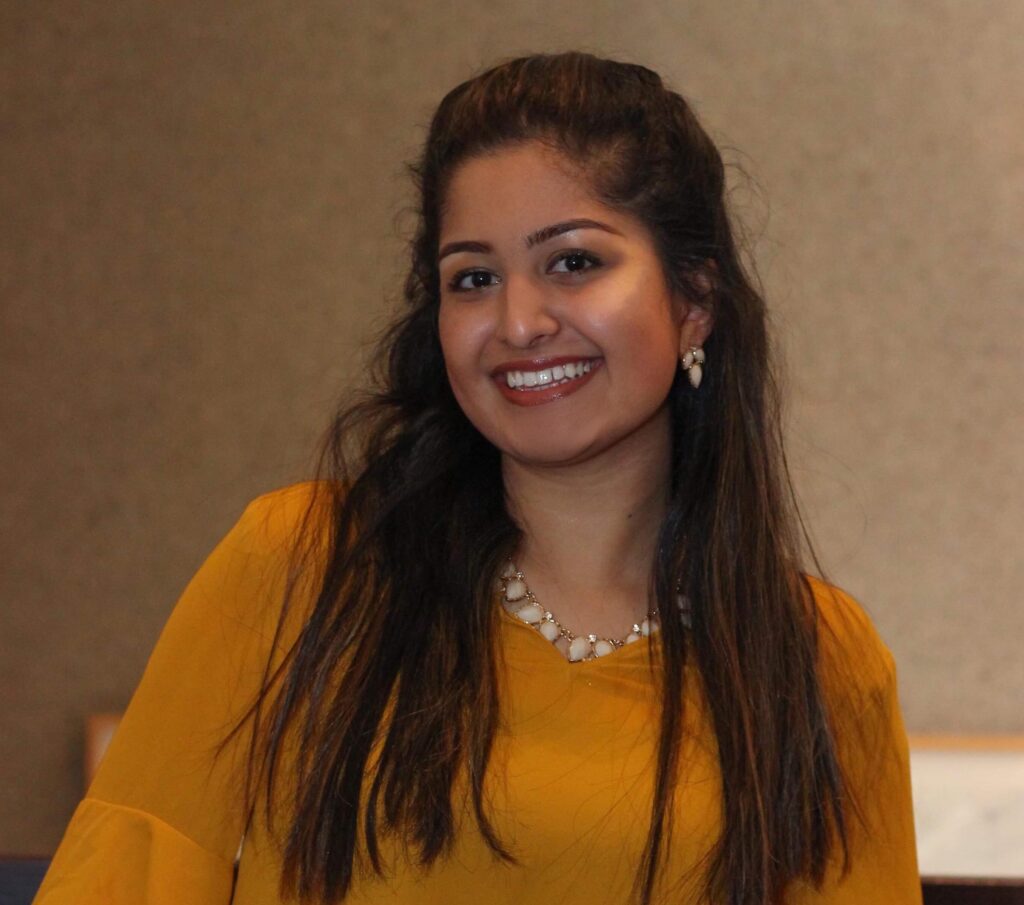We met Vaneezeh Siddiqui at the 2019 AHF Summit. Vaneezeh is a third year student at the University of Toronto, majoring in statistics and minoring in computer science and business. She’s the founder and president of the Women in Science and Computing team on campus, and a fierce advocate for diversity and inclusion in STEM. She’s passionate about leadership, tech, and big, bold ideas. If she’s not in classes or meetings, she’s probably trying out a new fitness routine, getting lost in a good book, or making to do lists.
Why did you start Women in Science and Computing at University of Toronto Mississauga campus?
I’m a firm believer in the power of community, and got through my first year by having friends I could rant to about all the little things that were adding up to make us feel like we didn’t belong in STEM. There were so many points along the way where I wondered whether I was cut out for this, and it was my circle that reminded me how far I’d come. Knowing how crucial that was to my success, and realizing that these conversations were happening on a smaller scale within friend groups but not at a larger, community level, was what gave me the push to start WiSC. It was important for students to know they weren’t feeling things like imposter syndrome in isolation, and a space to see themselves reflected in their fields of study. Creating opportunities for mentorship, career support, and personal growth has allowed us to empower our peers in the pursuit of their STEM careers, and has drawn attention to the experiences of women-identifying students and how we can make our learning environment more diverse and inclusive.
You have completed several summer internships in the financial services sector. What steps did you take to have meaningful experiences?
This past summer, I was working at a large financial institution as a Business Analyst in Technology and Operations. This was a role I was looking forward to because the team’s portfolio covered many areas I was interested in learning more about. I started my term by setting very clear goals and communicating those with my manager. I set metrics on my personal and professional development goals, outlined what I hoped to work on within my role, and which areas of the enterprise I wanted to explore. I also created an action plan to accompany my goals, and because I was communicating effectively, my manager knew what I was looking for and was willing to make introductions, send over relevant resources, or invite me to sit in on meetings and ask questions.
I also took steps to engage with the summer student community by joining leadership groups and attending events. This was a great way for me to get exposure to different lines of business and also connect with students across Canada. Being a virtual cohort of interns I worried about not being able to make friends. What I discovered is that I had nothing to worry about. There were tons of opportunities to engage and I leveraged them to their full potential. I built my network across the bank by reaching out for coffee chats and always going into them prepared, which lead to meaningful (and often super fun) conversations.
At the start of the summer, I told myself that I would always ask, even if I thought the answer might be no. And sure, the answer was no sometimes. But every time it was yes, I got the chance to try something new.
Going into work with an open mind and buying into your team is an important part of making it a fulfilling experience. I made sure to use my fresh student perspective to critically think about the work I was doing, and made suggestions for improvement if I thought we could make processes more efficient. I took the time to get to know my team and their work, and it also helped me discover other projects I ended up contributing to because I had asked for the opportunity. At the start of the summer, I told myself that I would always ask, even if I thought the answer might be no. And sure, the answer was no sometimes. But every time it was yes, I got the chance to try something new.
How do you invest in your own potential as a woman of colour?
I have this quote up on my wall that says “don’t self reject”, and even though I only started applying the message this year, the mindset has pushed me to step out of my comfort zone and take chances on myself. My most recent recruitment season, I realized I was talking myself out of roles I was fully capable of doing because I didn’t check one or two of the boxes and was worried that I wasn’t good enough. Ever since I began embodying this idea that I should be taking up space, I have seen my career go in directions that I never thought possible. Whether that be clicking the submit button on an application to speak at a conference or mentoring another woman in tech, I invest in my own potential as a woman of colour by realizing that I bring a lot to the table, and I need to stop holding myself back.
Ever since I began embodying this idea that I should be taking up space, I have seen my career go in directions that I never thought possible. Whether that be clicking the submit button on an application to speak at a conference or mentoring another woman in tech, I invest in my own potential as a woman of colour by realizing that I bring a lot to the table, and I need to stop holding myself back.
I actively look for opportunities to connect with mentors, ask insightful questions, and apply what I learn to improve and grow. That fear of failure still creeps in and can be so disorienting at times, but I always look back at my wins and remind myself of exactly what I’m capable of. I realize that by stepping into my power, I am creating space to bring other women up with me, and I owe it to myself to try my absolute best so that the glass ceiling doesn’t look as intimidating for the next girl that follows.
What advice would you give your younger self in high school or first semester of University?
It’s important to remember why you’re doing what you’re doing, and whenever you feel lost, come back to that. In fact, write it down. Circle it. Highlight it. University isn’t easy, and it hasn’t gotten easier over the years like I thought it would. There are things you’ll be incredible at and things that you will struggle with. Remembering the “why” gets you through the not so great days, and keeps you focused. And there’s no such thing as bird courses so just take what you’re actually interested in because your genuine interest will set you up for success.
At AHF we believe in celebrating and amplifying those who have paid it forward in our lives and careers. Who has been a great mentor, ally or sponsor and why?
My intro to computer science professor, Dr. Michael Liut, has been a mentor, sponsor, and ally to me throughout my journey as a student at UTM. A year after taking his class, I met him on the elevator and to be honest, didn’t expect him to remember who I was. We had just launched WiSC and were preparing for our first event, and I brought it up in conversation because I wanted to promote it to first-year students. It turned out he was heavily involved in the student community when he was in school, and offered his experience and support. I was new to leadership at the university level, and took him up on the offer. Since then, he has helped spotlight WiSC initiatives at the department level, advocated for our needs as students, and always been there to troubleshoot and help us deliver quality programming. The support I’ve received has accelerated my growth as a student leader, teaching me how to build and scale lasting organizations that continue to create a positive impact. He’s also one of my sponsors within the university community and beyond, supporting my personal and professional growth.



